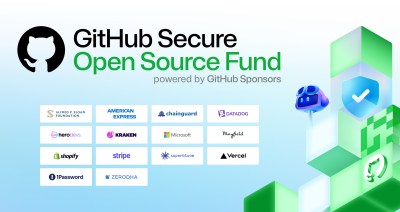Now more than ever, the social sector must embrace collaborative, remote-friendly solutions, such as open source. Last year, GitHub Social Impact’s Open Source for Good program embarked on a research project to identify the opportunities and barriers of open source in the social sector. We’re proud to announce that our culminating paper—Open Source in the Social Sector—is now live.
The “social sector” is made up of non-governmental organizations that have a primary purpose to actively advance or positively contribute to any pressing societal issue or challenge. Common industries in the social sector are public health, international development, disaster risk management, and humanitarian response. We conducted extensive research with the social sector, including two convenings of open source for social sector experts, an in-depth literature review, a survey with over 350 responses, and 55 in-depth qualitative interviews. Those who work in the social sector and were included in the paper broadly fell into three open source categories: consumers, producers, and funders:
Producers contribute to building OSS in the social sector through:
- Writing code as a software developer
- Maintaining OSS through triaging bugs, responding to comments, managing project boards, onboarding new producers
- Defining and aligning projects to governance structures or other requirements
- Designing or researching user interfaces, or contributing to the UI or visual design.
- Creating, maintaining, or contributing to documentation
Consumers primarily use at least one OSS without:
- Contributing back to the original OSS
- Open sourcing work built off the original project(s)
Funders provide external monetary support to an organization, person, or project for technology in the social sector.
Through our research, we uncovered innovative ways OSS supports programmatic work and general operations in the social sector. Key examples include bringing Agile and Human-Centered Design into an organization with OSS, creating custom mobile public health deployments, and separating funding streams for infrastructure and end-user code of an app. We also highlighted ways OSS could be better used to adopt technology solutions that strengthen social sector programmatic and operational work. Findings and recommendations are particularly actionable for:
- Technology implementers in the social sector
- Funders of social sector technology
- Developers and technology companies interested in the social sector
- Open source platform providers and supporters
Our paper is informing other current projects of Open Source for Good, such as the MERL Center, and will continue to serve as a research base for future work. We’re hoping the social sector and open source communities are also able to translate the insights and leverage the information for their work.
This paper was written by Gina Assaf, Independent Consultant and Mala Kumar, GitHub. Contributions were made by Admas Kanyagia, GitHub as well as John Jones, the Case Foundation. A special thanks goes out to Rebecca Jablonsky and Cate Johnson for their help on the research and draft writing, to Benjamin Donahue and Alex Kovak from Dev Design, to Margaret Furr, to Aspiration Tech for connecting us to their network, and to the many experts whose insights informed this research.
Learn more from the Open Source in the Social Sector paper



